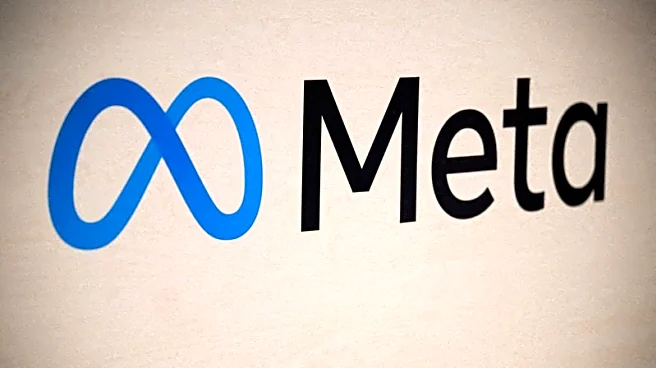By Aditya Soni and Echo Wang
MENLO PARK, California (Reuters) -Meta is expected to launch on Wednesday its first consumer-ready smart glasses with a built-in display, seeking to extend the momentum of its Ray-Ban
line, an early consumer hit of the artificial intelligence era.
The new glasses will likely be named "Celeste" and paired with Meta's first wristband for hand-gesture controls, though their expected $800 price tag may dissuade some buyers, analysts said. CNBC has reported the glasses could feature Prada branding. The event is scheduled to begin at 5 p.m. PT (8 p.m. ET).
The glasses are expected to include a small digital display in the right lens for basic tasks such as notifications, along with features available on its existing Ray-Ban and Oakley smart glasses such as an AI assistant, cameras, hands-free control and livestreaming to its social media platforms including Instagram.
While Meta has been at the forefront of developing smart glasses, it trails rivals such as OpenAI and Alphabet's Google in rolling out advanced AI models. CEO Mark Zuckerberg has kicked off a billion-dollar talent war to poach engineers from rivals and promised to spend tens of billions of dollars on AI chips.
The launch at Meta's annual Connect conference, held at its Menlo Park, California, headquarters, comes amid scrutiny over Meta's handling of child safety on its social media platforms.
Reuters reported in August that Meta chatbots engaged children in provocative conversations about sex and race, while whistleblowers said earlier this month that researchers were told not to study the harmful effects of virtual reality on children.
For Zuckerberg, whose massive bet on the metaverse has so far resulted in losses of tens of billions of dollars, smart glasses are the ideal device for superintelligence - a concept where AI surpasses human intelligence in every possible way - because they serve as a personal, always-on interface that can see, hear, and interact with the world through the user's perspective.
Analysts have said Meta's new glasses are a step toward the planned 2027 launch of its "Orion" augmented virtual reality smart glasses, whose prototype was unveiled last year. Zuckerberg described the product as “the time machine to the future."
"It wasn’t long ago that consumers were introduced to AI on glasses and in recent quarters brands have also begun to include displays, enabling new use cases," said Jitesh Ubrani, research manager for IDC’s Worldwide Mobile Device Trackers.
“However, consumer awareness and product availability of AI glasses with display remains limited. This will change as Meta, Google, and others launch products in the next 18 months."
Google said in May it had partnered with Warby Parker to develop an AI-powered eyewear line, with the first products expected after 2025. As part of the deal, the tech giant committed to an equity investment of up to $150 million in the eyewear brand.
IDC forecasts worldwide shipments of augmented reality and virtual reality headsets, and display-less smart glasses, will increase by 39.2% in 2025 to 14.3 million units, with Meta driving much of the growth thanks to demand for the Ray-Bans it makes with EssilorLuxottica.
(Reporting by Aditya Soni and Echo Wang in Menlo Park, California; Editing by Sayantani Ghosh and Matthew Lewis)











